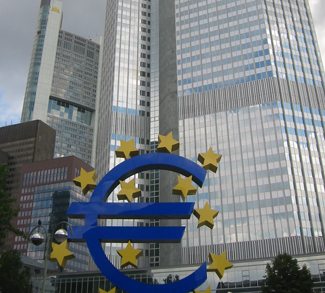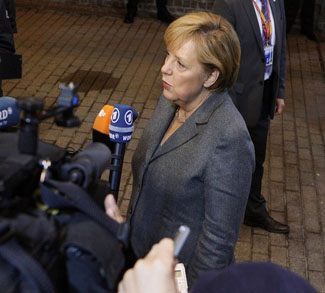A weak euro has allowed Germany to post its highest quarterly growth since unification.
The German figures are as positive as they are surprising, and overall they can be taken as a sign that the euro zone may be on the road to post-Greece economic recovery. Modest growth has been recorded in several other European countries in the second quarter: France posted 0.6 percent, up from 0.2 percent, and Spain and Italy posted 0.2 and 0.4 percent respectively.
While most economists are pegging Germany to grow at a rate of over 2 percent for 2010, Europe’s economic fundamentals remain somewhat obscured by the large amount of stimulus money that is driving economic growth. Furthermore, the issue at the center of the Greek sovereign debt crisis– deficit spending in the euro zone- remains unresolved and as such it is always possible that European economies could once again find themselves under siege by predatory speculation.
Around the internet:
Richard Barley of the Wall Street Journal points out that domestic demand is playing a big role in the German surprise:
“Crucially, it’s not just strength in exports: domestic demand is playing a role too. Headwinds from a cooling Chinese economy and flagging U.S. growth will take their toll, but are unlikely to take the shine off the year. With momentum continuing into the third quarter, Germany’s economy is likely to expand more than 3% this year, far above the 2% consensus expectation.”
On Bloomberg, Andreas Scheuerle went on the record to say:
“In annualized terms, the German economy expanded about 9 percent in the second quarter. That puts it on a footing with emerging markets like China and India.”
The euro hit a high of $1.2906, buoyed by the news out of Germany.
Zachary Fillingham is a contributor to Geopoliticalmonitor.com



